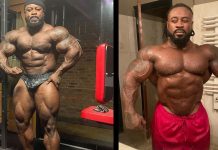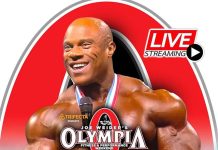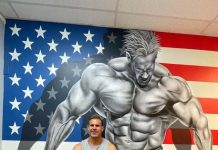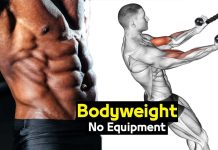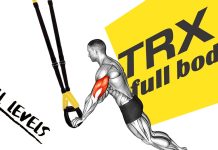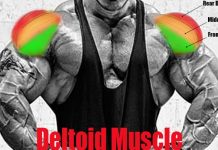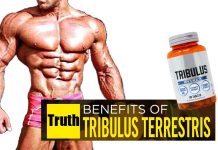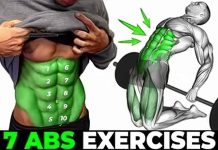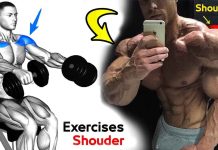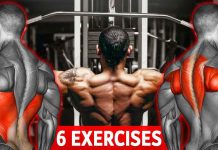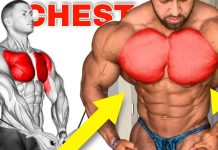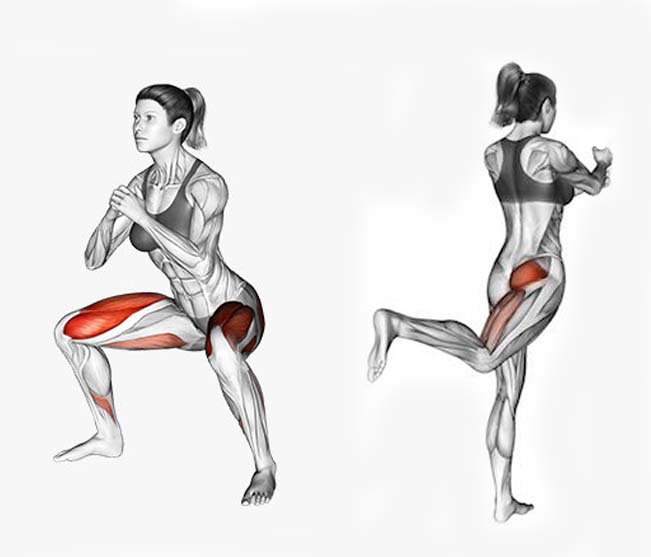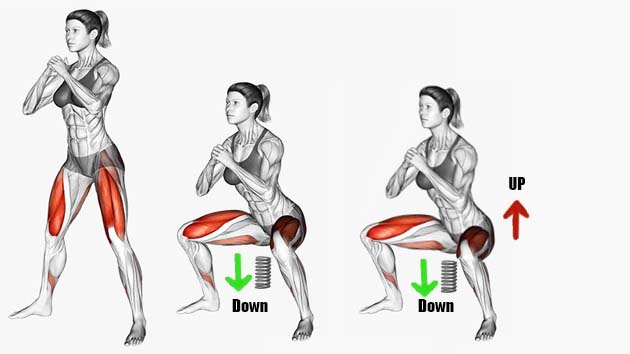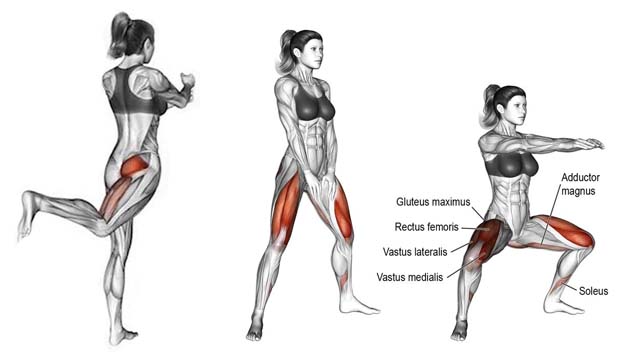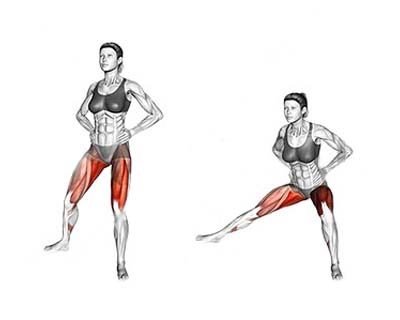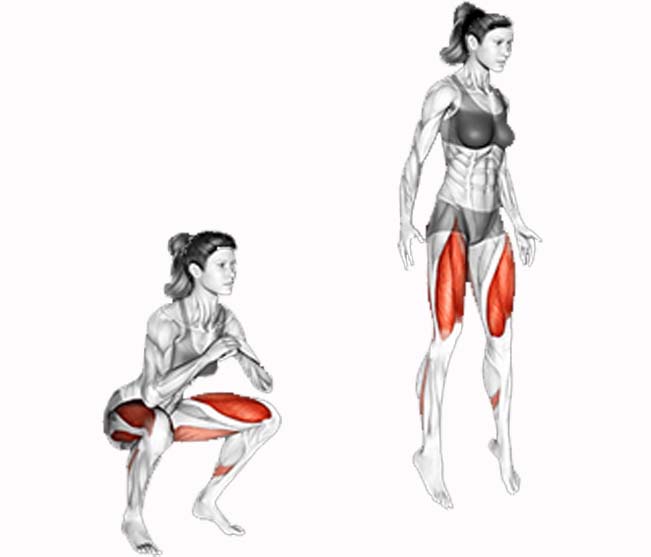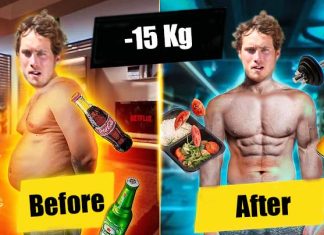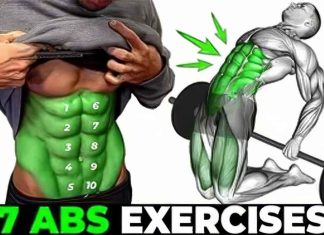How to Do a Squat Effective, Step by Step
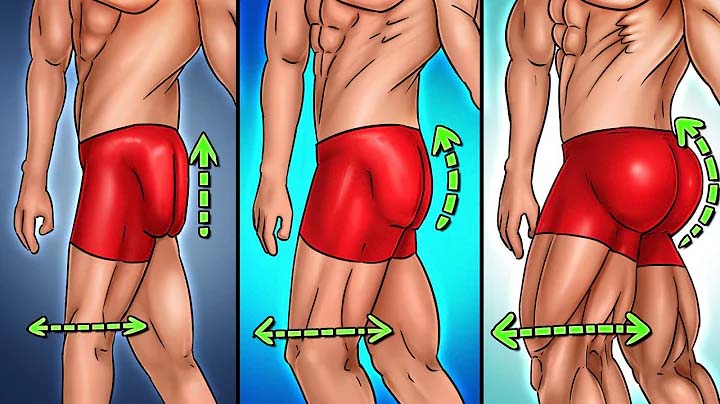
Squats are an opportunity to tone your butt and pump up your legs. Also today we will look at how to train legs without machines, using only your own weight. Also, when squatting, you use several muscle groups at once, such as the back, and core muscles. Consider this approach as squats 10 sets for 20 squats, the multi-rep squat method will be effective with the weight option as body weight.
Remember that squatting also entails injury, and can lead to painful sensations or lead to a knee injury. Learn how to squat correctly, read our article and take advantage of all the benefits of squats.
Tips
Squats target three target muscles, the glutes, and hamstrings, and the main muscle that receives the load is the quadriceps.
- Tighten the stomach;
- Straighten your back;
- Look straight ahead.
Perform each exercise 20 times with minimal rest breaks.
The advantage of bodyweight squats is that you do not need any equipment or even sportswear, do these exercises where it is convenient for you, a park, or a sports field or even a gym.
1. Classic Squats
Classic squats engage the main target muscle, the quadriceps.
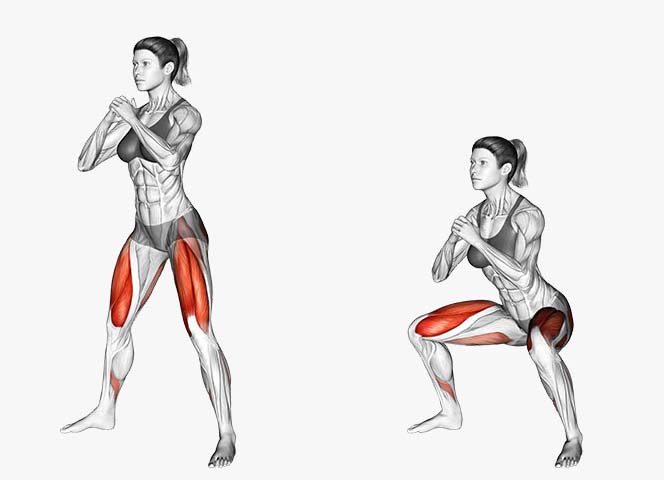
Primary Muscles: Quadriceps
Secondary Muscles: Glutes, Hamstrings
How to Do:
Try to squat a little deeper than 90 degrees, the deeper the more the quadriceps will turn on. The position of the back should be parallel to the angle of the lower leg. The feet are firmly and steadily on the floor. Do 20 rep squats, rest for about a minute, and move on to the next squat variation.
2. Plie Squat
Plie squats help to make the legs slim and the buttocks more rounded.
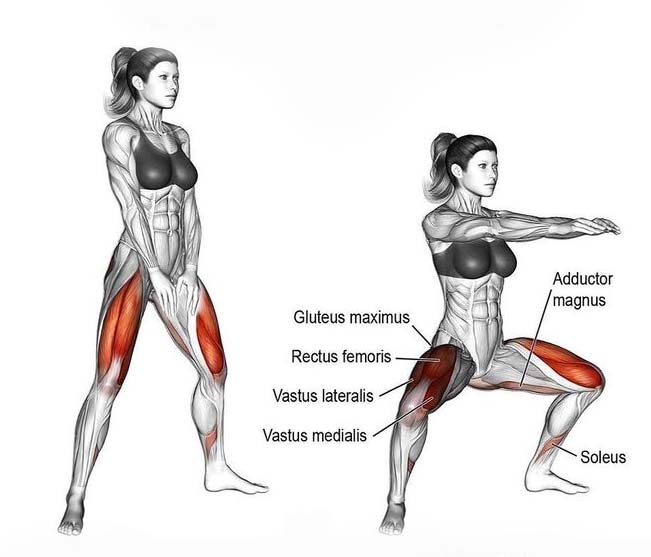
Main muscles: quadriceps, adductors
Secondary muscles: glutes, hamstrings
How to do:
Place your feet shoulder-width apart, and turn your feet to the sides. The angle of rotation of the foot depends on your flexibility. Gently lower yourself as deep as possible, and feel the tension in the adductor’s thigh. Keep your head down and don’t look down at your feet.
3. Squat With Side Leg Raise
When performing Squat With Side Leg Raise in addition to the main muscles of the thigh, the oblique muscles of the abdomen and the muscles of the lower back and gluteal muscles are also involved.
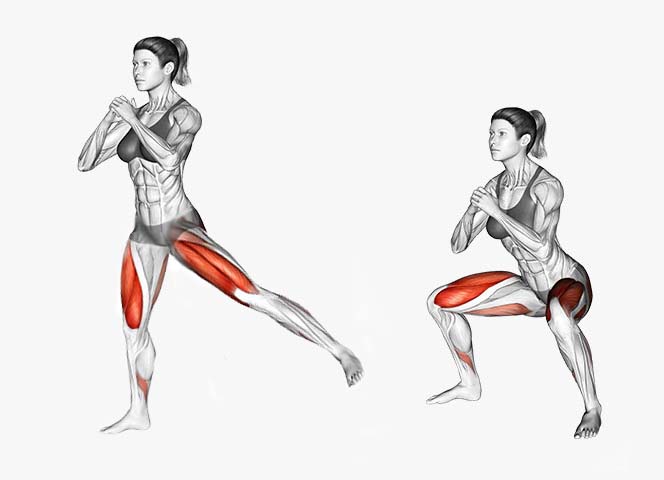
Main muscles: quadriceps, adductors
Secondary muscles: glutes, hamstrings, oblique muscles
How to Do:
Make a squat, and at the moment when you rise, take your leg to the side with a slight fixation. Raising your leg depends on your stretch. Try to raise your leg as high as possible without tilting your torso to the side. Do 20 repetitions, alternating legs. Rest 1 min. and go to the next exercise.
4. Carousel Squat
With squats, the so-called carousel, with the help of rotation of the pelvis, the adductor’s thigh is best worked out.
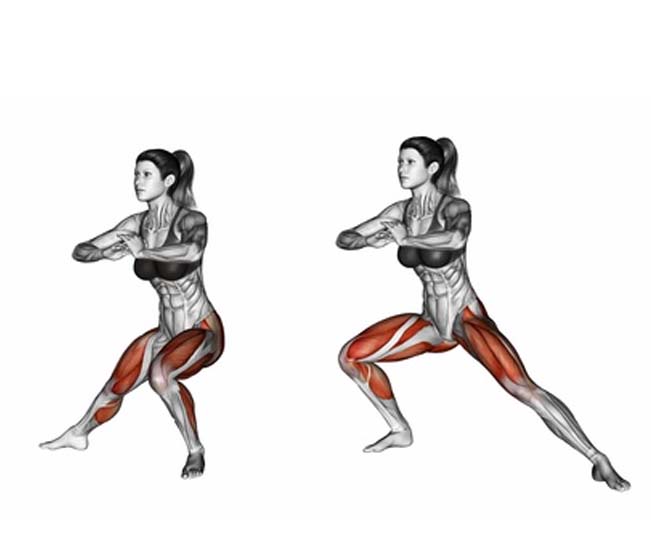
Main muscles: adductors, quadriceps
Secondary muscles: glutes
How to Do:
Start the squat by rolling from the right foot to the left, as if emitting a carousel, which is why these squats are called so. Do 20 reps and move on to the next squat variation.
Tips:
Before starting the exercise, be sure to warm up the knee joints well, since the main load will fall on them.
5. Squat Leg Raises
Squats with leg raise at the end are an ideal exercise for working out not only the legs but also the buttocks.
Main muscles: quadriceps, glutes, hamstrings
Secondary muscles: adductors
How to Do:
Keep your back straight as you squat. Do not tilt your body forward when you take your leg back. Do 20 repetitions, alternating legs.
6. Triple Spring & Deep Squat
This is a classic squat with extra weights at the very bottom.
Main muscles: quadriceps, hamstrings
Secondary muscles: glutes, adductors
How to Do:
Perform a squat as deep as possible, at the very bottom, begin to spring and get up a little and sit down again even deeper than the first time, so we do 3 times and get up, this will create a static load on the legs, which will involve the deepest fibers of the thigh muscle. Do 20 reps and move on to the next exercise.
7. Sumo Squat + Kick Legs
Sumo squats perfectly work out the adductors of the thigh, and then alternately lifting the legs back additionally puts a load on the muscles of the buttocks, as well as the inner and back of the thigh.
Main muscles: quadriceps, glutes, hamstrings
Secondary muscles: adductors
How to Do:
Perform a sumo squat, as you rise take your leg back about 45 degrees, alternating legs each time you rise. Try not to bend your leg while lifting, and keep your back straight during a deep squat.
8. Side Lunges
Lateral lunges work your legs, buttocks, and adductor thigh muscles to the maximum.
Main muscles: quadriceps, adductors
Secondary muscles: glutes, hamstrings
How to Do:
From a standing position, do a side lunge to the side and sit as deep as possible, this will maximize the use of the quadriceps and adductors of the thigh.
9. Ski Squats
Squats with a slightly springy motion help to maximize the impact on the gluteal muscles and the back of the thigh.
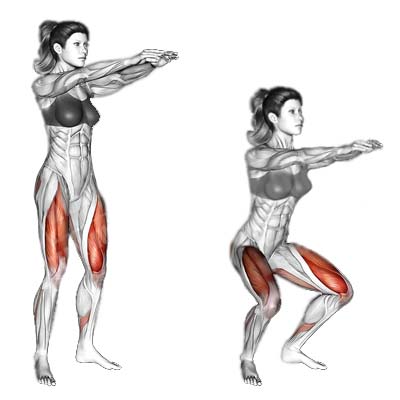
Main muscles: quadriceps, adductors
Secondary muscles: glutes, hamstrings
How to Do:
Perform skier-style squats, legs as close as possible to each other or hip-width apart, at the bottom point, make springy movements down to the floor with your pelvis, and return to the starting position. Complete 20 reps and move on to the next exercise
10. Jump Squats
Final exercise: deep jump squat. This type of exercise will help build strong legs and also work your buttocks well.
Main muscles: quadriceps, glutes
Secondary muscles: adductors
How to Do:
Perform a squat, the classic technique, and at the moment when you rise up, make an inertial push with your leg muscles and jump as high as possible. This engages the deepest muscle fibers, all the leg muscles including the buttocks.
Conclusion
We reviewed 10 exercises that we will perform for 20 repetitions. We perform the exercise one after the other circle. Then we take a rest, for whom one circle will not be enough, do 2-3 circles.
With these squats without weights, we work out all the muscles of the thighs and after a month you can already see the results of your work.
Source:
BBodyBuild.com uses only high-quality sources, including peer-reviewed studies, to support the facts within our articles. Read our editorial process to learn more about how we fact-check and keep our content accurate, reliable, and trustworthy.
- https://www.sciencedirect.com/science/article/abs/pii/S0021929022000859
- https://pubmed.ncbi.nlm.nih.gov/14636100/
- https://link.springer.com/article/10.1007/s11596-012-1009-3
- http://www.journals.aiac.org.au/index.php/IJKSS/article/view/2844


